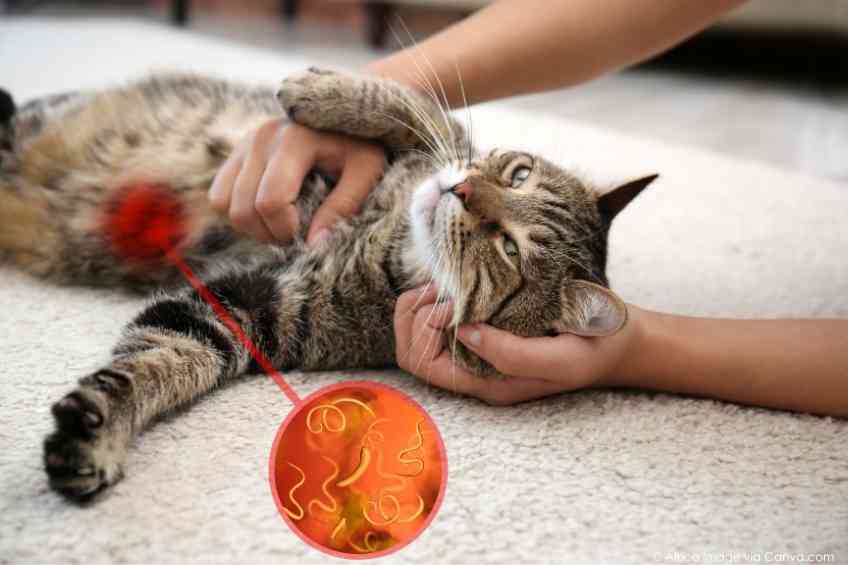By John Salak –
A new warning is anything but the cat’s meow. Scientists have found that a common cat-borne parasite that is already linked to promoting risk-taking behavior and mental illness in humans may also contribute to exhaustion, muscle loss and other signs of “frailty” in older adults.
Researchers from three universities headed by the University of Colorado Boulder have specifically zeroed in on how the tiny, single-celled organism Toxoplasma gondii (T. gondii) could wreak even bigger havoc on humans than first suspected.
“We often think of T. gondii infection as relatively asymptomatic, but this study highlights that for some people it may have significant health consequences later on,” explained co-author Christopher Lowry, a professor at CU Boulder.
An estimated 11 to 15 percent of people in the U.S. have been already infected with T. gondii at some point. Infection rates trending much higher in older individuals. Once infected, people can unknowingly harbor the parasite for life.
The multi-university research team developed its findings by examining the blood samples of more than 601 Spanish and Portuguese adults over 65. They all had measures of a common geriatric syndrome known as “frailty,” which includes unintentional weight loss, tiredness, loss of cognitive sharpness and other indications of declining health.
Approximately two-thirds of these adults were also “seropositive” showing markers in their blood of a latent infection. The researchers, admittedly, did not identify a specific association between T. gondii infections and frailty. But they did note that among those infected, those with higher “serointensity” or a higher concentration of antibodies to the parasite, were significantly more likely to be frail.
Higher serointensity could reflect a more virulent or widespread infection, multiple infections or recent reactivation of a latent infection, the researchers speculated.
“This paper is important because it provides, for the first time, evidence of the existence of a link between frailty in older adults and intensity of the response to T. gondii infection,” noted co-author Blanca Laffon, a professor at Spain’s University of A Coruña.
Regardless of its ultimate impact, cats are the key. Wild and domestic cats, in fact, are considered the definitive host of the parasite, while warm-blooded animals like birds and rodents serve as secondary hosts. When cats eat infected animals, T. gondii takes up residence and multiplies in their intestines, shedding eggs in their feces.
People are typically infected via exposure to those eggs via litter boxes, contaminated water or dirty vegetables. They can also get it by eating undercooked pork, lamb or other meat that’s infested.
This connection is especially critical for feline lovers in the U.S. where almost 60 million cats are kept as domesticated pets. Beyond this, it’s estimated that the country holds up to 100 million feral cats that often come in contact with humans.
The study warned that most people never know they’ve been infected, with only about 10% initially having brief flu-like symptoms. Unfortunately, the danger can linger dormant for decades, hidden in cysts in muscle and brain tissue, before creating problems. T. gondii is particularly dangerous because it often rests in the emotion-processing region of the brain known as the amygdala, potentially leading to some significant mental health consequences.
People who have been infected, for example, tend to engage in risky behavior, with research showing they can be more impulsive, more entrepreneurial and more likely to get in a car accident. They also have higher rates of schizophrenia, certain mood disorders, cognitive problems and are at a higher risk of suicide, the study noted.
The research team stressed that while an absolute association between T. gondii and frailty has not been established, they found that frail people with high T. gondii seropositivity also had higher levels of certain inflammatory markers, suggesting that infection with the parasite could exacerbate inflammation that already occurs with aging. Since it also tends to hide out in muscle tissue, it is quite possible that it could hasten sarcopenia or age-related muscle wasting.
More research is obviously needed, but the researchers stressed the need to take precautions to avoid getting infected. They suggested changing litter boxes daily and thoroughly washing hands afterward. Avoid eating undercooked meats, while also rinsing fruits and vegetables completely before consuming. If pregnant or immunocompromised, they recommended avoiding changing litter boxes personally. They also suggested keeping domesticated cats inside, while avoiding contact with stray and feral cats.










